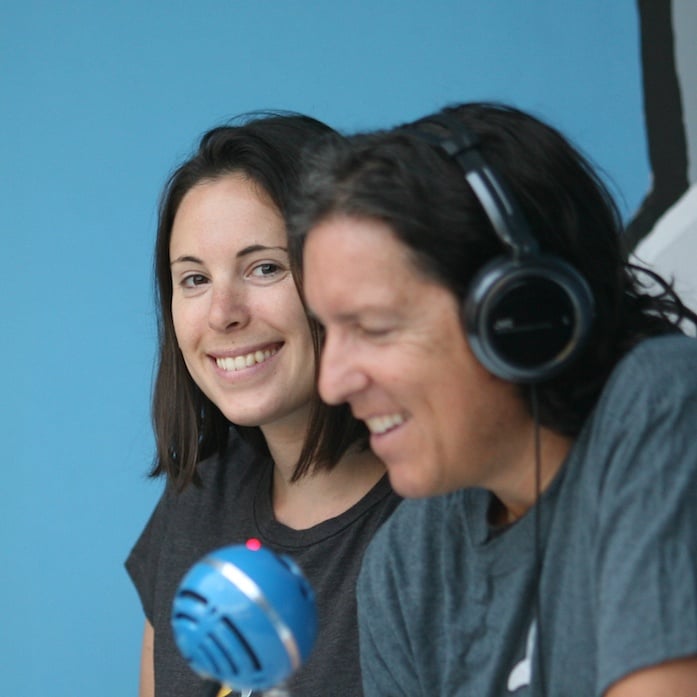In this episode, Oakland-based novelist and strategist Eliot Peper joins us to discuss his fourth novel, Cumulus, a dark, gritty science fiction story set in a near-future San Francisco Bay Area ravaged by economic inequality and persistent surveillance. Eliot shares how his entrepreneurial background and embracing a "helping sells" approach has helped him become a highly successful self-published author.
Is Eliot a writer who does VC on the side, or a business guy who became a fiction writer?
Eliot's challenge of every cocktail party has been revealed! Eliot came from the startup world but his first novel came out in 2014, emerging from his experience in the venture world. Both inform each other: startups are a whole new world with fortunes won and lost, teams breaking up and re-forming, world-changing technologies, and much to get excited about. Almost all of the startup books are nonfiction: a founder who was successful and write a memoir building a company with intended result of that book being advice for new entrepreneurs. That captures a large portion of the business literature. The human experience in startups needed a voice: hence, Eliot writing startup fiction. To capture the emotion, texture, and suffering and struggle in building companies, Eliot has turned to writing fiction.
A Famous VC Discovered Eliot's Work ("An Unusual Proposition")
Brad Feld is managing director at Foundry Group, and as a VC, he has a blog called "Feld Thoughts". While many jealously horde their insights and hope to capitalize on their experience better, Brad is the polar opposite and has done an amazing job at being forthright and forthcoming about venture investing and businesses, but it has changed the tenor within the venture finance industry. Other top VCs have done blogging since then because Brad was one of the founding fathers of pulling back the veil of the secret world of venture capital. Eliot employed a "helping sells" approach and, after enjoying Brad's blogs and frequently commenting on and forwarding posts, he sent Brad chapters of his first book Uncommon Stock. By attaching the first few chapters, Eliot was able to provide him something he might enjoy ("helping") and Brad, as a fan, connected with him two hours later. Brad was helpful to Eliot both in providing feedback to help improve the story and enthusiasm gave him an excuse to believe in himself.
Cumulus: A cyberpunk novel set in a near-future SF Bay Area ravaged by economic inequality and persistent surveillance

Photo Credit: https://www.flickr.com/photos/urban-integration/
Moving back to his hometown, Oakland, inspired Eliot to write about the Bay Area's transitions due to simultaneously economic growth and growing inequality. He envisions a near-future world with persistent surveillance and even more inequality. There is a point of confluence between amazing promises and realization of promises that technology makes for humanity (dramatically improving quality of life, things past generations would think are magical) and fundamental human problems of social issues and racism and poverty. On one hand, we have unbelievable dream coming true and why isn't it helping the problems that we've always struggled with? Cumulus allows readers to see inside the minds and hearts of characters living in this dystopian world that may vary well become a reality.
Self-Publishing Tips From A Pro: Harness Grassroots Internet Marketing
Novels aren't easy products to market. If you have fans, they'll mention it to people, but you wouldn't find out from a billboard. Eliot emails his network of friends and fans to chat about these topics. From film rights invitations to the front page of Reddit, Cumulus has elicited incredible fan reactions. By galvanizing a network of early adopters who were raving promoters, Eliot was able to Cumulus go viral.
Who needs a publisher? Advice For Publishers on how to Adopt a Helping Sells Approach
Eliot hired professional editors, graphic designers, and more to help his book come to life. Most book sales are online so that has opened up the field to publish. He didn't go through a traditional publishing gatekeeper. The internet is empowering creative people and the arts, and it is no longer required to use a traditional publishing house to get your ideas out there. Self-publishing won't get your books into airports or Costco. Publishers could be giving authors proactive, useful creative input and good notes to help them make an awesome cover. Just like if you're launching anything, it's hard to be signal within the noise. A great publishing partner would have relationships with people in the media and other authors to connect with and get advice or blurbs from. Publishers could network with book clubs or offer advice on engaging with readers and building fan base communication platforms. An enlightened publisher could add value and be a highly contributing partner, but there is an institutional challenge publishers face because they are large companies often owned by international operating companies with other media companies in their portfolios. Changing direction is hard for them. But they should take heed to Eliot's advice!




